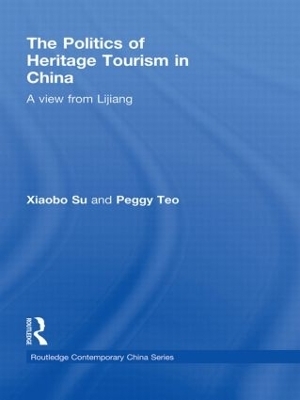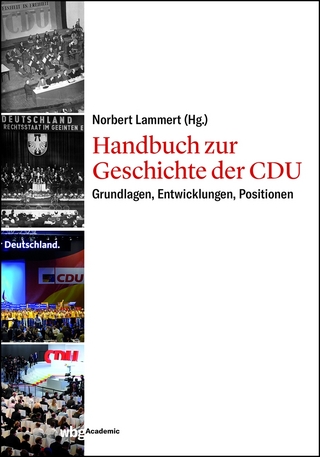
The Politics of Heritage Tourism in China
A View from Lijiang
Seiten
2009
Routledge (Verlag)
978-0-415-47808-3 (ISBN)
Routledge (Verlag)
978-0-415-47808-3 (ISBN)
Unravels the politics surrounding the hegemonic project of tourism development through the example of Lijiang Ancient Town, a mature destination that has been used by the Chinese state as exemplary policy-making. This book examines the dialectical relationships between global and domestic capital, the state, tourists and locals as they collude.
This volume unravels the politics surrounding behind China’s hegemonic project of heritage tourism development in Lijiang. It provides a compelling study of the dialectical relationships between global and domestic capital, the state, tourists and locals as they collude, collaborate and contest one another to ready Lijiang for tourist consumption.
Using rich material from insightful interviews and quantitative data, the authors show how complex tourism development can be even as it strives to do good for the community. Su and Teo investigate the practices of contestation and negotiation of identity within Lijiang; analyze the negotiations that transform material and vernacular landscapes; and suggests strategies that will enable sustained tourism interest in this location. Linking Gramsci’s theory on hegemony to the cultural politics of space, this book has two major strengths: it establishes a theoretical framework to conceptualize power relations in tourism space and provides critical insights into the rapidly shifting socio-political landscape of contemporary China. Comparisons with other Chinese heritage sites are also provided.
By addressing the power struggles inevitable in the process of tourism development, The Politics of Heritage Tourism in China provides an innovative understanding of China’s dynamic politics in a period of transition. As such, it will address the needs of students and academic scholars working in the fields of China studies, tourism, cultural studies, urban studies, sociology, geography, political science and heritage studies.
This volume unravels the politics surrounding behind China’s hegemonic project of heritage tourism development in Lijiang. It provides a compelling study of the dialectical relationships between global and domestic capital, the state, tourists and locals as they collude, collaborate and contest one another to ready Lijiang for tourist consumption.
Using rich material from insightful interviews and quantitative data, the authors show how complex tourism development can be even as it strives to do good for the community. Su and Teo investigate the practices of contestation and negotiation of identity within Lijiang; analyze the negotiations that transform material and vernacular landscapes; and suggests strategies that will enable sustained tourism interest in this location. Linking Gramsci’s theory on hegemony to the cultural politics of space, this book has two major strengths: it establishes a theoretical framework to conceptualize power relations in tourism space and provides critical insights into the rapidly shifting socio-political landscape of contemporary China. Comparisons with other Chinese heritage sites are also provided.
By addressing the power struggles inevitable in the process of tourism development, The Politics of Heritage Tourism in China provides an innovative understanding of China’s dynamic politics in a period of transition. As such, it will address the needs of students and academic scholars working in the fields of China studies, tourism, cultural studies, urban studies, sociology, geography, political science and heritage studies.
Xiaobo Su is Assistant Professor at the Department of Geography, University of Oregon. Peggy Teo is an independent scholar working on tourism issues in Asia. She is also co-editor of Interconnected Worlds: Tourism in Southeast Asia (Pergamon, 2001) and Asia on Tour: Exploring the Rise of Asian Tourism (Routledge, 2009)
1. Rethinking tourism politics 2. The cultural politics of tourism: exploring the complexity of hegemony 3. Locating Lijiang: connections and process 4. Producing heritage: Lijiang’s immersion into global tourism 5. Consuming heritage: tourists’ expectations and influence on Lijiang 7. Local agency in heritage tourism 8. Conclusion: cultural politics of heritage tourism and beyond
| Erscheint lt. Verlag | 3.8.2009 |
|---|---|
| Reihe/Serie | Routledge Contemporary China Series |
| Zusatzinfo | 27 Tables, black and white; 17 Halftones, black and white; 17 Illustrations, black and white |
| Verlagsort | London |
| Sprache | englisch |
| Maße | 156 x 234 mm |
| Gewicht | 570 g |
| Themenwelt | Sozialwissenschaften ► Politik / Verwaltung |
| Wirtschaft | |
| ISBN-10 | 0-415-47808-1 / 0415478081 |
| ISBN-13 | 978-0-415-47808-3 / 9780415478083 |
| Zustand | Neuware |
| Haben Sie eine Frage zum Produkt? |
Mehr entdecken
aus dem Bereich
aus dem Bereich
die Weltmacht im Hintergrund
Buch | Softcover (2022)
Klarsicht Verlag
CHF 30,80
Grundlagen, Entwicklungen, Positionen
Buch | Hardcover (2023)
wbg Academic (Verlag)
CHF 55,95


